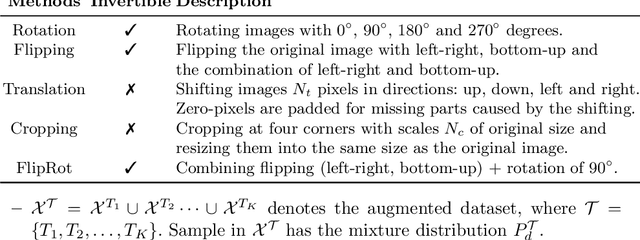Towards Good Practices for Data Augmentation in GAN Training
Paper and Code
Jun 09, 2020



Recent successes in Generative Adversarial Networks (GAN) have affirmed the importance of using more data in GAN training. Yet it is expensive to collect data in many domains such as medical applications. Data Augmentation (DA) has been applied in these applications. In this work, we first argue that the classical DA approach could mislead the generator to learn the distribution of the augmented data, which could be different from that of the original data. We then propose a principled framework, termed Data Augmentation Optimized for GAN (DAG), to enable the use of augmented data in GAN training to improve the learning of the original distribution. We provide theoretical analysis to show that using our proposed DAG aligns with the original GAN in minimizing the JS divergence w.r.t. the original distribution and it leverages the augmented data to improve the learnings of discriminator and generator. The experiments show that DAG improves various GAN models. Furthermore, when DAG is used in some GAN models, the system establishes state-of-the-art Fr\'echet Inception Distance (FID) scores.
 Add to Chrome
Add to Chrome Add to Firefox
Add to Firefox Add to Edge
Add to Edge